Sweden Indicts Two Iranian-Born Brothers 'Spying For Russia'
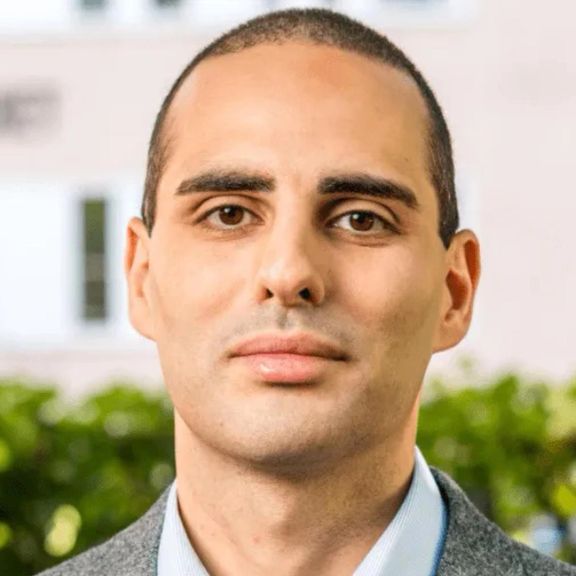
Sweden says two Iranian-born brothers and citizens of the country have been charged with spying for Russia and its military intelligence for about a decade.

Sweden says two Iranian-born brothers and citizens of the country have been charged with spying for Russia and its military intelligence for about a decade.
Swedish authorities have identified the two as, Peyman Kia, 42 and Payam Kia 35. One of these two brothers has also been indicted for alleged gross unauthorized handling of secret information.
Reportedly the older brother has been working with Sweden's Domestic Intelligence Agency for years.
“It has been a complex investigation concerning a crime that is very difficult to investigate and the suspicion concerns very serious criminality directed against Sweden's intelligence and security system," National Security Unit chief prosecutor Per Lindqvist said.
He noted that this case is about confidential and very sensitive information but refused to give further explanation.
According to the charge sheet obtained by AP, these two brothers have provided information to the Russian Military Intelligence Department (GRU) between September 28, 2011 and September 20, 2021.
It adds that Peyman Kia, obtained this information from various security and intelligence institutions of Sweden when he was working at Sweden's Domestic Intelligence Agency and the Swedish Armed Forces. The other brother also helped to make contact with “Russia and the GRU including matters of surrender of information and receipt of compensation.”
They were arrested in September and November 2021. Both have denied any wrongdoing, Swedish media reported. The brothers face up to life imprisonment if convicted. A life sentence in Sweden generally means a minimum of 20-25 years in prison.
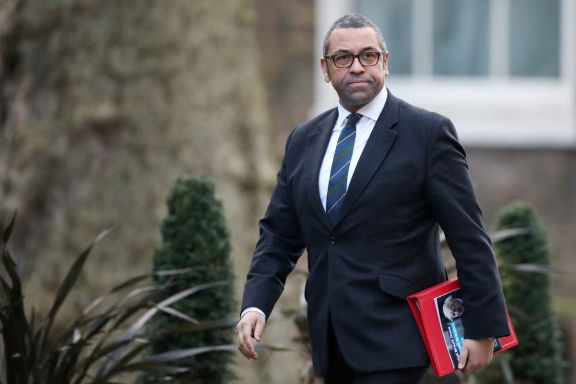
Britain has summoned the Islamic Republic’s chargé d’affaires over threats to UK-based journalists after Iran International’s journos were notified of "imminent" threats to their lives.
In a statement on Friday, Foreign Secretary James Cleverly said, "I summoned the Iranian representative today to make clear that we do not tolerate threats to life and intimidation of any kind towards journalists, or any individual, living in the UK."
“The UK will always stand up to threats from foreign nations,” read the statement.
Criticizing the Iranian regime, it added that the Islamic Republic responded to widespread internal protests with the suppression of freedom of expression and the targeting of media outlets operating in Iran.
It noted that more than 40 journalists have been arrested and detained since the current wave of protests began following the death in custody of 22-year-old Mahsa Amini. The journalists who reported the circumstances around her death have been also arrested.
The Metropolitan Police formally notified two of our journalists about an imminent, credible and significant risk to their lives and those of their families.
Earlier in the week, Iran’s intelligence minister implicitly threatened the UK of terrorist operations after the country decried the attempted menacing acts.
Iranian vice president Mohammad Hosseini also emphasized Thursday that the Islamic Republic now considers Iran International as a terrorist network. Iranian intelligence also arrested Elham Afkari Thursday, claiming that she was “an agent” of Iran International. Afkari is the sister of Iranian wrestler Navid Afkari who was executed in September 2020, after participating in protests.
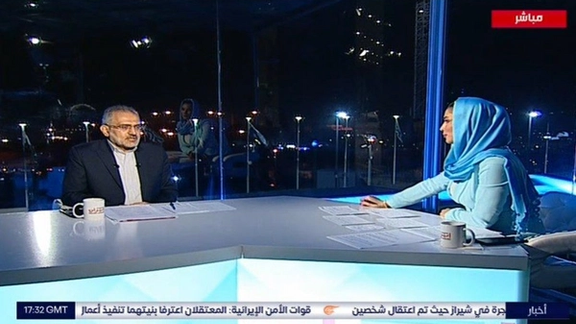
The Iranian vice president for parliamentary affairs has threatened that the Islamic Republic will respond to anyone involved in the current protests anywhere in the world.
Mohammad Hosseini made the remarks during a Thursday interview with Al Mayadeen TV, a media outlet close to Iran-backed Lebanese militant organization Hezbollah.
"We'll respond wherever necessary, even in other countries, as we did in the case of Iraqi Kurdistan. We may even take some actions and not announce them," he said.
The intelligence services of the US, the UK, France, Israel and Saudi Arabia are conspiring against the Islamic Republic round the clock, he claimed, adding that “even some European embassies” tried to provoke people during the recent protests and were consequently warned.
Referring to the ongoing protest and strikes across the country and its coverage by Iran International and other foreign-based Persian-language media, he said, “We now consider Iran International as a terrorist network. Many of its elements inside the country have been arrested.”
He added that “Iran International, Manoto, BBC, etc. have started a media tsunami against the Islamic Republic and its people,” claiming that “They based their work on the big lie of killing Mahsa Amini [by hijab police], someone who had been sick since childhood.”
On Thursday, Iranian intelligence arrested Elham Afkari, claiming that she was “an agent” of Iran International. Afkari is the sister of Iranian wrestler Navid Afkari who was executed in September 2020, after participating in protests. Earlier in the week, two of our journalists were notified of threats to their lives by the UK Police.

Amid international concerns over the Islamic Republic’s violent crackdown on dissent, its foreign minister has warned the UN Human Rights Council over organizing any session to discuss the situation.
In a phone conversation with UN Secretary General Antonio Guterres Thursday night, Foreign Minister Hossein Amir-Abdollahian warned of the “negative consequences” of the UNHRC’s “political measure” on cooperation between the Islamic Republic and the West, referring to calls for a special meeting over the deadly clampdown on the current protests across Iran.
Alleging that the Islamic Republic has "deeply exercised restraint" in the ongoing unrest – which has left over 300 protesters dead and about 15,000 detained, he told the UN chief that such a meeting should be held for countries that "promote violence and terror."
“The UN Human Rights Council should hold sessions for governments that are encouraging violence and terror, not for the Islamic Republic of Iran which is a true defender of human rights and has exercised great restraint during recent riots,” he said.
Amir-Abdollahian added that “Contrary to the UN Charter, a few Western countries exploited the peaceful demands in Iran and encouraged violence and offered tutorials on building weapons and Molotov cocktails on media and social networks which led to the killing of police and insecurity in Iran.”
Iranian officials have been accusing “enemies” of fomenting protests, but so far have not presented any evidence.
He also claimed that “technical” negotiations between Iran and the International Atomic Energy Agency (IAEA) are at “appropriate” levels, despite remarks by the head of the UN’s nuclear watchdog. Rafael Mariano Grossi said Wednesday Iran did not offer anything new during a recent meeting in Vienna to resolve major differences.

Commander of Iran's Revolutionary Guard Hossein Salami has threatened the Islamic Republic's “enemies,” claiming that they are frightened and on alert mode.
Salami made the remarks during a ceremony to commemorate the 11th death anniversary of Hassan Tehrani Moqaddam, one of Iran’s earliest missile architects, who was killed when a huge explosion rocked a missile base 30 miles from Tehran in November 2012.
Moghaddam was among 17 top IRGC officers killed that day, in what many believed was an operation by Israeli intelligence. The incident was so shocking that even Supreme Leader Ali Khamenei attended the funeral at the time.
Salami said that "the enemies" are sending regular messages to Iran, pleading not to be targeted by a military response, without specifying which enemies. “Now it is a number of days that enemies do not have peace and are on alert.
Since popular protests began in Iran, the clerical regime has threatened Western countries and Saudi Arabia, claiming they are behind the unrest. The IRGC commander added, “Those sitting in glass houses in Riyadh, Tel Aviv, New York, and Paris are designers of riots.”
Salami added that “we targeted the anti-revolution [groups] in the Iraqi Kurdistan region, held a major military drill along Aras River, launched a satellite-carrying rocket, tested Bavar 373 missile system with a range of 300km, and we announced yesterday that we have developed a new missile that no missile defense system is able to confront it.”
“Enemies should know that if they targeted one of us, we will target all of them,” referring to the killing of IRGC’s Quds (Qods) commander Qasem Soleimani. “You targeted our Qasem but we will target all of you and expel you from the region,” he maintained.
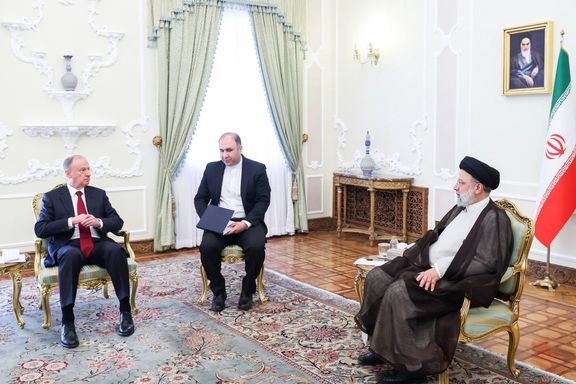
US State Department Thursday voiced concern over expanding ties between Russia and Iran, calling it a “deepening alliance” after Tehran’s drone supplies to Moscow.
Department spokesperson Ned Price answering a question during his press briefing about the visit of Russia’s national security council secretary Nilolai Patrushev to Iran this week, said, “All of this is a concern in the context of the partnership – in some ways the burgeoning partnership – that we’ve seen develop in recent years and in different ways in recent months between Iran and Russia. This is a deepening alliance that the entire world should view as a profound threat.“
Patrushev held meetings with his Iranian counterpart Ali Shamkhani and President Ebrahim Raisi on November 9, discussing their "strategic partnership".
Price referring to Iranian drones used by Russia against Ukraine said that the US is working with the international community "to address the threats that are posed by Russia and Iran separately and the cooperation…between the two of them, including Iran’s dangerous proliferation of weapon systems to Russia."
Price also reiterated concern over Russia possibly helping Iran with knowledge of how to suppress protests but did not share any evidence of such cooperation.
A reporter asked Price during his briefing for more details about an initial statement two weeks ago that Russia may be helping Iran to suppress demonstrators.
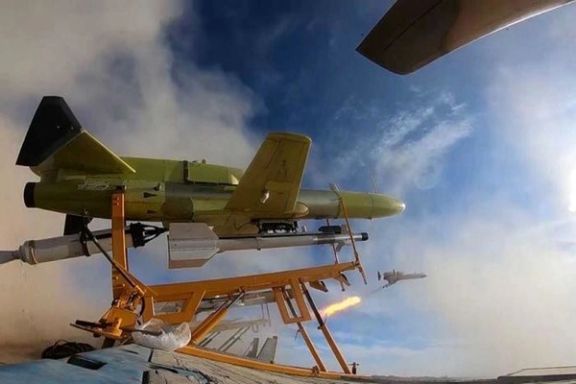
“Unfortunately, there’s nothing more I can provide,’ Price responded adding that “In some instances we’re able to provide additional detail, including as we’ve done with the transfer of weapons. In this case it was the broader point that there are indications that this knowledge may be shared.”
Price went on to say that both Russia and Iran “have a good deal of experience when it comes to repression. They have both demonstrated their effectiveness when it comes to their ability to repress their people…our concern is that they will share this knowledge and that they will attempt to optimize those practices.”
Russia is a signatory of the 2015 nuclear accord known as the JCPOA and played an active role during 18 months of negotiations in Vienna initiated by the Biden Administration immediately after coming to office. But ultimately Iran presented demands unacceptable for Washington and the talks reached a dead-end in August, as Tehran was delivering military drones to Moscow.
In the meantime, Iran continues to expand its nuclear program with enriching more uranium, with having stockpiled 62 kilograms of fissile material enriched at 60 percent, enough for one nuclear weapon. The UN nuclear watchdog, the IAEA confirming this development voiced concern on Thursday [Nov. 10].
Iran is also expanding its missile program, with testing its ballistic missiles with space launches and developing new weapons.
A top Iranian commander announced Thursday that Tehran has developed hypersonic ballistic missile.
"This missile has a high speed and can maneuver in and out of the atmosphere. It will target the enemy's advanced anti-missile systems and is a big generational leap in the field of missiles," commander Amir-Ali Hajizadeh was quoted as saying.
IAEA’s chief Rafael Grossi pointing to this announcement said during the United Nations COP27 climate meeting in Egypt that “We see that all these announcements increase the attention, increase the concerns, increase the public attention to the Iranian nuclear program.”